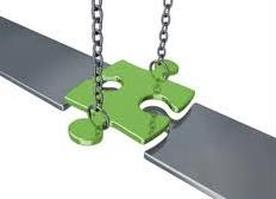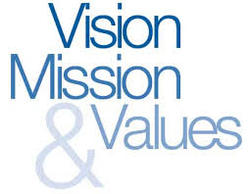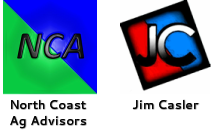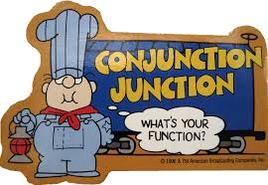 Last we explored the benefits of developing Standard Operating Procedures (SOPs) for your family farm business. Now, let’s spend some time helping you identify them, the consequences of deciding not to develop them and finally, some thoughts on how to help the senior generation of your family business stop micro-managing the team.
Job descriptions serve many functions and if this is new information for you…great! If you’ve heard it before and never really implemented anything…well, shame on you. Just kidding. Seriously, this is all about continuous improvement. So, back to job descriptions. In our practice, the unofficial statistics reveal that less than half of our most modern agricultural producers have adopted this as part of their management practices. How can this be? After working with many family farm clients in this area we learned that a common roadblock was that they did not completely understand the need for job descriptions or how to go about implementing the idea. Secondarily, we have also heard feedback that formalized job descriptions were more for non-family business employees and staff. Let’s examine further…shall we? Job descriptions help in daily operations as well as succession planning in a few key ways.
So, the need for job descriptions for your family farm have been clearly stated. Now what? A seemingly difficult, but fairly simple task is to begin by documenting the various tasks and decision-making areas of your family business. There are now two key tasks to perform and listed in the order of importance below…
 You need a process for filling the gaps between the skills possessed by your team and the skills needed for the future. You need a process for filling the gaps between the skills possessed by your team and the skills needed for the future. Oftentimes, the least qualified person on the team is doing something they shouldn’t be, or is tasked with something that they really don’t have the skills to perform. This happens for many different reasons. By determining the qualifications and skills needed for the task ahead of time, it becomes less personal and more objective to assess who should perform what role in your family farm business. Regardless of a transition plan or not, this exercise might help rearrange your team members to perform different roles that they are more qualified to perform. You and your team might become more effective and happier. This exercise also helps show where gaps may exist. Oftentimes, no one is qualified to perform a certain task or area of decision making. So, it needs to be outsourced, filled internally or someone needs to get the training necessary to fill that role. As mentioned above, when looking toward the future and the “stepping aside” by senior management and the “stepping up” by a successor generation, presumably there are differences between the decision-making skills and areas of responsibility between the two generations, with the senior generation having much more responsibility and decision-making authority, along with the associated skills to do so. The gap between the roles each performs today and what you have determined needs to be performed in the future becomes your management transition plan. For example, Uncle Joe and Dad make any land purchase decisions. When Dad and Uncle Joe retire in 10 years, Billy and Susie are going to need to make those decisions. What skills do Dad and Uncle Joe possess today that enable them to make good land purchase decisions (presumably) that Billy and Susie will need to learn to make good decisions in the future? How are they going to learn them? Do they want to learn them? If not, who can they get to fill that role in the future? Does that make sense? Now, carry that line of thinking to all the roles and decision-making areas of the business. It’s just a matter of taking the time to determine the roles, gaps and timelines for gaining the necessary skills for continued success of your family business. To best accomplish this, honest self-assessments, performance reviews, natural strengths and weaknesses and a system for helping flush this all out builds the basis for continuity in operations and accomplishes a formidable task of any succession planning. As you might imagine, we have some various forms and detailed exercise to help you with this specific task. If you’d like a copy, please email me and we can get out to you right away. Until next time, Statement of Core Values or
|
|
The final component of developing the foundations of the management system for your family business surrounds the beliefs and behaviors that you intend to follow or keep sacred in managing your family farm business. Specifically, a Statement of Core Values or Philosophy of Operations Statement.
In order for your family business to ascend towards its vision, core values must be clearly identified and communicated. A well-developed Statement of Core Values will make it clear to the reader and your team whether your future plans for growth are reserved and conservative or aggressive, whether your priorities are based on the “here and now” or whether you value “the long term”. Your Statement of Core Values also answers the question or how members of your family business should behave toward one another and your customers and vendors. READ MORE... |
Your mission, if you choose to accept...

There are two remaining areas to explore and to help you develop the foundation to a long lasting family business and your management system: Mission Statement and Core Values. Let's explore mission statements a little further.
It is essential to understand how you are going to realize your family business purpose and attain your vision. This is the function of your Mission Statement. Many times, mission statements and vision statements are used interchangeably. These are two distinct statements that serve two different requirements for your family farm. The mission statement clarifies and explains what the members of the organization will actually do to achieve the purpose and vision.
Carrying out the mission statement on a consistent basis helps your business achieve the purpose and pursue its vision. I know it might be a little confusing, but your purpose, vision statement and mission statements all build upon each another and point everyone in the same direction. There is a great amount of synergy that results by giving your team a clear sense about the principal role that they play.
"Outstanding people have one thing in common: An absolute sense of mission." | From a nuts and bolts standpoint, your mission statement is a clear and concise declaration about your business strategy that describes: (a) the key products or services to be provided (the what), (b) the target market or primary customer (the who), (c) the primary business objective to be accomplished (the how) and, (d) what value your are bringing. |
| Additionally, and possibly most importantly, your mission statement ought to be the daily driver of action for your team and as such, it provides a “check and balance” for every goal, strategy and action plan that is undertaken. If a business activity or decision conflicts with the mission statement, either the activity or decision is misguided or the mission statement is incorrect. | "If you have a family mission statement that clarifies what your purpose is, then you use that as the criterion by which you make the decisions." |
“At Chateau de Pahrump we grow grapes, make super-premium class wine and provide Northern Michigan hospitality with exemplary service from our one-of-a-kind site on Michigan’s Leelanau Peninsula. As good stewards of resources, our goal is to operate a profitable and ethical business that utilizes new technology and provides enjoyable work conditions with opportunities for advancement and personal growth. “
“Our mission is to transform natural resources into high quality livestock for domestic and foreign customers in a way that will provide a fair rate of return to our owners, a safe and satisfying working environment and be capable of providing income for future generations.”
“Our mission is to help connect people who want to sell a business with people who want to buy a business. We provide business owners and brokers with flexible options for listing their business online. For buyers, we offer helpful tools such as our saved listings feature and customized email alerts to make finding the right business easier.”
After you have developed your family farm’s mission statement, you will be ready for the final part of the foundational elements for your family business, core values.
Categories
All
Agriculture
Benchmarking
Best Practices
Business Planning
Challenges
Communication
Conflict Resolution
Core Values
Delegation
Dysfunction
Education
Family Business
Family Farms
Family Meetings
FarmFutures.com
Farm Management
Farm Pictures
Financial Management
Generation Gap
Goals
Harvesting
Humor
Improvements
Interviews
Jim Casler
Job Descriptions
Leadership
Lessons
Long Term Planning
Management Systems
Management Transition
Michigan
Mission
Newsletter
North Coast Ag
Operating Philosophies
Operations Manual
Outside Business
Personal Accountability
Pictures
Podcasts
Policy Creation
Press
Project
Project Planning
Quotes
Responsibility
Roles
Standard Operating Procedures
Strategic Planning
Strategy
Succession Planning
Teamwork
Testimonials
Thanksgiving
Thought Of The Day
Transition Planning
Traverse City
Video
Vineyards
Vision
Wine
Winery Benchmark Programs
Archives
June 2020
August 2016
July 2016
August 2015
July 2015
June 2015
May 2015
April 2015
March 2015
February 2015
January 2015
December 2014
November 2014
October 2014
September 2014
August 2014
July 2014
June 2014
May 2014
April 2014
March 2014
February 2014





 RSS Feed
RSS Feed
